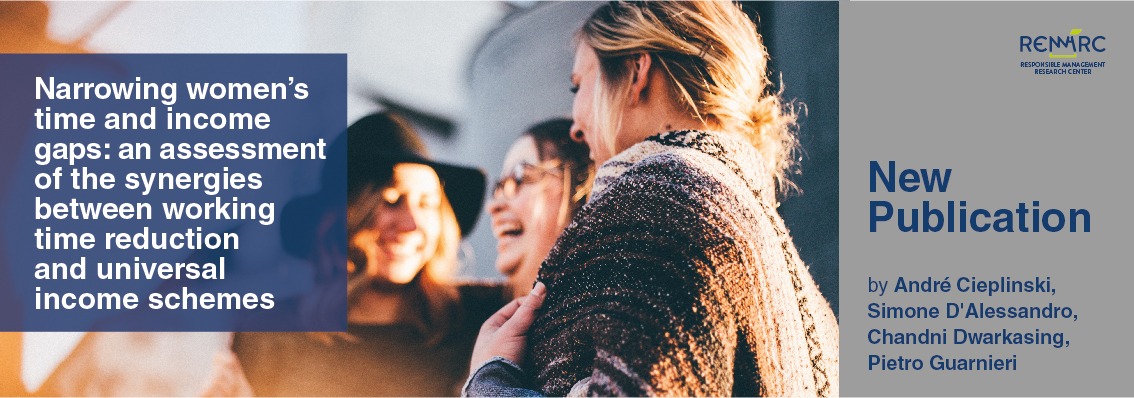A new publication on narrowing women’s time and income gaps

André Cieplinski, Simone D’Alessandro, Chandni Dwarkasing and Pietro Guarnieri have published their article “Narrowing women’s time and income gaps: An assessment of the synergies between working time reduction and universal income schemes” in World Development.
Abstract
This paper departs from the hypothesis that policies targeting time poverty have the potential to reduce the gender income gap through the redistribution of time use between women and men. To this purpose, we compare two policy mixes and assess the synergies between working time reduction and two universal income schemes: a basic income and care income programme. While the former provides every individual with an equal monetary benefit, the latter ties monetary benefits to the amount of unpaid and care work performed by individuals. We assess the impact of these policy mixes by applying Eurogreen, a macrosimulation model tailored to Italy. Results suggest that while working time reduction directly drives a reduction of the aggregate amount of time spent by women in unpaid work, this does not imply a reduction in time poverty. The universal income schemes – and in particular the care income – promote a reduction of gender inequality in terms of income by sustaining women’s total income, but leave the wage gap between women and men unchanged.
Congratulations!



